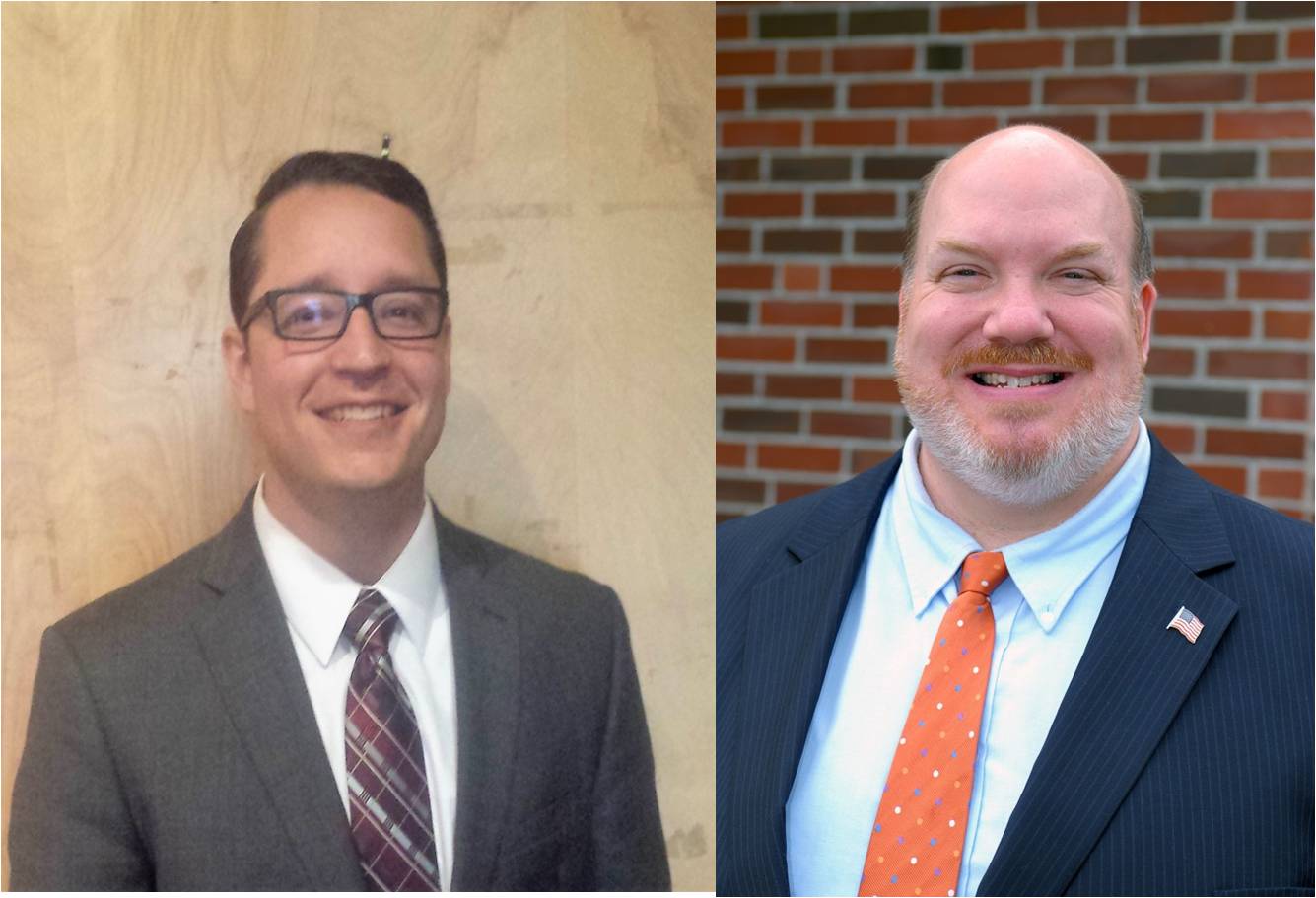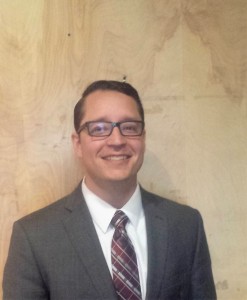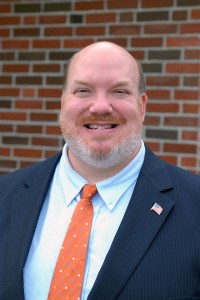SPRINGFIELD—Sen. Don Humason (R) and JD Parker-O’Grady (D) continued their battle for the second Hampden and Hampshire district senate seat, as they sat down to discuss their politics at a taping of the WGBY ch. 57 television show “The State We’re In” with host Jim Madigan.
The show, which will be airing Oct. 7 at 7:30 p.m., on WGBY, featured the candidates discussing many topics, particularly those that will be ballot questions in November. These topics included economic development, legalized marijuana, charter school funding and opiate addiction.
Madigan prompted the discussion by saying that it wouldn’t be a standard debate, “but rather a discussion between the candidates.”
To start, the candidates discussed economic development in the area, which both agreed needs to happen more and with better funding.
“We have so much potential in western Massachusetts, there’s just so much we can do to bring the jobs here,” Parker-O’Grady said.
Parker-O’Grady mentioned Easthampton in particular, whose redeveloped mill district has helped to draw artists and families into the area. Parker-O’Grady suggested that the state should be granting more money to these cities and towns with areas like Easthampton, so that they can continue the development and thus create more jobs and spending.
Humason agreed, saying that the focus of the legislature has been on economic development since he has been elected.
“Obviously the economy is the biggest issue that faces us every year,” Humason said.”If we’re not making sure the economy across the Commonwealth and here in our district is strong, then nothing will prosper.”
“You can’t spend money on education or civil services or veterans or infrastructure if the economy isn’t doing well.”
Humason also called on the further support of creative economies, such as cultural councils in cities and a push for more artists.
The next topic was opiate addiction, which is a topic that has struck many cities, especially Holyoke, Springfield and Westfield, over the past year. The two candidates agreed that it has affected the cities and towns tremendously and that more should be done to help those seek treatment.
“I think for the longest time the state wasn’t focused on the issue and it’s coming to focus tragically and sadly over the past year,” Humason said. “And I think any one of us in our home towns or our districts know somebody or some family who has been affected by someone addicted to opiates or has passed away from the use of opiates.”
Humason said that his voting record shows that he supports more treatment for those addicted, citing five different pieces of legislation he voted “yes” to that were designed to assist those with drug issues.
However, Humason said that he believes this is a local issue, and that while the state should be there to assist, it is up to local municipalities to determine the best treatments and courses of action.
For Parker-O’Grady, he said that there have been steps taken by the state to help combat opiate addiction, but he believes that there hasn’t been enough.
“There hasn’t been as much done about treatment,” Parker-O’Grady said. “We tried to address supply, but we need to address the demand, it’s still there. And that demand is that people are still addicted to these drugs.
“They will still seek out these drugs, so unless we create new treatment programs and pathways to get to those new addiction programs we are going to have an issue in this state.”
Parker-O’Grady added that the problem is not just a criminal one, but a medical crisis, and believes that it should be treated as such.
Following the discussion on opiates, marijuana legalization came up, which was where the two candidates began to differ in opinion. The question of legalizing cannabis for sale is on this year’s state ballot.
“I’m in favor of legalized marijuana use in Massachusetts, I think for a few reasons,” Parker-O’Grady said. “First it allows us to safely regulate… Second, that tax money can be used for some really great things. We need it, we have a budget problem.”
Parker-O’Grady cited Colorado as an example, where he said the state drew $100 million in additional tax revenue following the legalization of marijuana.
However, Humason said that he is not in favor of legalizing marijuana, and used Colorado as his own example of why the state shouldn’t.
“We have learned from the state of Colorado that did legalize the recreational use of marijuana, that children are the target,” he said.
Humason said that baked goods such as cookies and brownies, as well as gummies and candies, are all made with THC, the main derivative of marijuana, and could all be seen as focused toward children.
“That’s the way the tobacco industry targeted cigarettes, like Joe Camel and other campaigns to try to hook kids on the product,” Humason said.
Additionally, Humason thought that with the opiate crisis ongoing, the suggestion of legal marijuana use seemed contradictory.
“I think it sends a very mixed message on the part of government to say opiates are bad and you can’t do drugs, but that you can smoke pot,” he said.
Parker-O’Grady countered this however, saying that opiate overdoses in states with legalized marijuana have decreased, according to an American Journal of Medicine study.
Another ballot question that came up during the discussion was question two, which regards charter school funding.
Again, the two candidates disagreed with one another, standing close to their party lines on this topic, but both also felt that there was not enough being done for education in general.
For Humason though, he saw charter schools as an option to help with the problem of education.
“I see them as providing an alternative to parents and students who look at their school futures and school opportunities as pretty dismal,” he said of charter schools.
He also said that he agreed with what Gov. Baker said about charter schools, saying “every parent and every child should have the opportunity to go to the best school possible.”
Parker-O’Grady disagreed with Humason about charter schools, however. His desire instead, is to increase public school funding and promote more focus on what public schools provide.
“I think as a state we should be focusing on public schools, instead of siphoning it away and focusing on these private enterprises,” he said.
Parker-O’Grady also mentioned that increased funding should be going toward post-secondary education like community and state colleges and universities.
“These are engines of economic growth in the area, they provide training for jobs,” O’Grady said.
The both men came back to agreement on the next issue, however, as they discussed the need for creating a defined budget from the state for smaller cities and towns.
Both asked that a floor be set for a standard acceptable amount that each city and town would get annually, and each said that they would fight for this.
On the final topic of income tax, the two candidates again found themselves at odds.
For Humason, it seems only fair that the tax rate remain flat in Massachusetts, rather than a graduated rate that the federal government has.
“Obviously, you make less money you pay less in taxes, if you make more money you pay more in taxes,” Humason said of the flat tax rate.
Humason also appealed for a lower overall tax rate, in order to drive more spending into the private economy and helping to bolster tax revenue that way.
For Parker-O’Grady though, a graduated tax rate is a better option because it allows those who have more money to be able to provide more of what they have, while not taking away from those with less at the same rate.
“I think someone who has more money has a better cushion that they can provide back to the community,” Parker-O’Grady said.
For complete coverage of the discussion, watch the two discuss on State We’re In on WGBY, Oct. 7, at 7:30 p.m.




